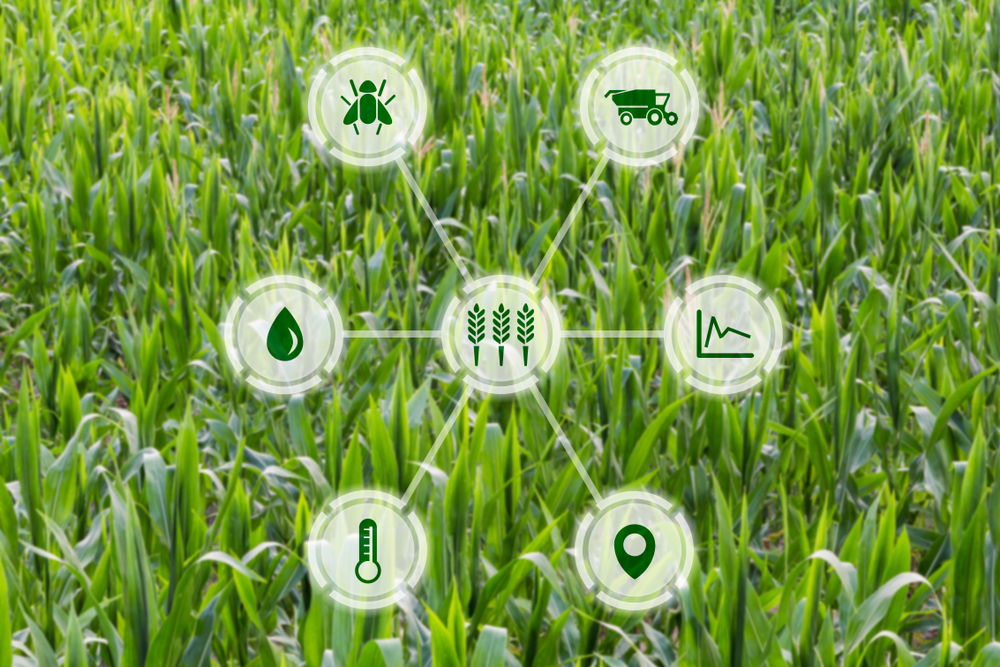How agricultural analytics can pave the way for sustainable farming practices

If you look at some of the biggest concerns facing the farming industry, soil health, water use, and regenerative agriculture rank as top concerns in the industry.
Archaic farming practices, like excessive use of fertilisers and using large volumes of water, are no longer seen as viable farming methods. To compensate, agribusinesses are turning to sustainable farming practices powered by fourth industrial technology, like IoT and agricultural analytics.
In our latest blog, we explain how agricultural analytics plays a huge role in sustainable farming.
Why does sustainable farming matter?
Sustainable farming refers to farming practices that can meet the needs of the present, without compromising the needs of future generations.
Sustainable farming is not just a mantra, it is a set of policies and procedures that have proven to be effective in improving farming productivity, and reducing food waste.
In fact, studies show that sustainable farming practices, powered by IoT and agricultural analytics, can save approximately $155-$405 billion a year by 2030.
One excellent example is the Wangree Plant Factory, which used IoT and agricultural analytics to make farming practices more sustainable. The end result was significant gains in reducing resource consumption and improving yield.
For example, the Thai-based agribusiness reduced the cost of infrastructure by 50 per cent, reduced the cost of fertiliser by over 80 per cent, while also increasing product weight per unit by 33 per cent to 75 per cent. Furthermore, they were able to reduce water consumption by over 99 per cent and cut plant defects by 30-50 per cent.
How are agribusinesses looking to make sustainable farming a reality?
Sustainable agriculture is a key practice for the future and many farmers and agribusiness are looking to make that a reality using modern technology.
Fourth industrial revolution technology, like IoT devices and sensors, are perfect for making sustainable farming a reality. This is because these sensors can measure farming equipment. IoT devices are a key part of sustainable farming because they are able to make precise measurements on fertiliser usage, water consumption, and energy use.
However, while IoT sensors collect a wide variety of data and measure different KPIs, all of it wouldn’t mean much if there are no devices to convert the data into useful information. This is where agricultural analytics comes into play.
The benefits of agricultural analytics in sustainable farming
Agricultural analytics serves as the missing link between IoT sensors and sustainable farming. The data analytics platform can sift through the large volumes of data looking for trends and irregularities in the use of farming resources.
Analysts can make sense of farming data
IoT sensors are constantly collecting data on resource consumption. Trying to make sense of data from different devices, like drones, crop sensors, and automated equipment is challenging because the data comes in different formats. Agricultural analytics make sustainable farming a reality because of its ability to measure resource use right down to the minute detail.
Analytics can streamline data management
Furthermore, agricultural analytics can simplify the management of big data. IoT sensors can collect a lot of data but if it is difficult to understand, then it becomes difficult to manage. If data is not collected and analysed, then it becomes difficult to achieve some of the more sustainable farming practices, like smart spraying, seeding, and harvesting. Agricultural analytics can work around this problem by analysing the data and presenting the findings in a way that works.
Agricultural analytics dashboards can automate and visualise the presentation of data, making it far more accessible than before. Data is set up in a way that makes for easy assessment and collaboration between different analytics professionals, which means higher quality analysis and findings for everyone involved.
Agribusinesses can be more proactive in their farming practices
Most importantly, agricultural analytics allows agribusinesses to be more proactive in their cultivation practices. Data analytics can collect data on different conditions related to weather, soil quality, and pesticide use. Agricultural analytics can draw data from a variety of sources, including satellites, drones, and robots. The analytics software can generate useful information about future weather conditions and plan their farming practices around that. In other words, they can proactively manage farm yields.
Agricultural analytics can take the complexity out of data collection and analysis by automating and visualizing the process, which means lower operating costs.
Taking the sustainable route
Agricultural analytics can help transform the farming industry for the better. While we have only tapped into sustainable farming, analytics placed a host of other benefits as well. For example, data analytics can optimise supply chain management and better anticipate demand in the future through automated demand sensing to better mitigate the risks of farming in the future.
